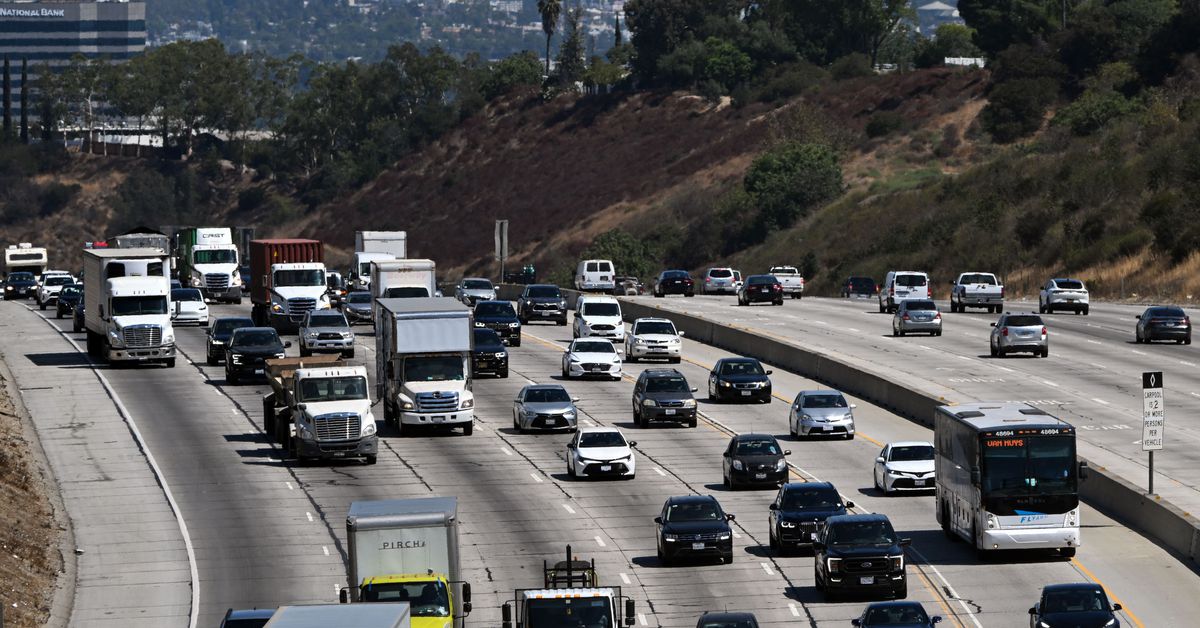“American Automakers Refuse to Participate in Race to Make Accessible, Fuel-Efficient Vehicles”
Fixed that title for you, Verge.
They are, however, winning the race to make more gas guzzling profit generators that destroy this planet for the benefit of their shareholders.
Until the exemptions for “light trucks” go away this won’t change. The current CAFE standards reward automakers for making even larger, less efficient and more dangerous “passenger” vehicles every year.
On top of that average lifetime of a car in US is 12 years so those car’s will be on the roads for a decade or two after exemptions are removed.
Much longer than 12, that’s the average age (including new cars). This site says the average lifespan is closer to 17 years.
And of course, the US Auto industry loves light trucks and SUVs because of how fucked the CAFE standards are, meaning it’s cheaper and easier to create unsafe cars that are not only more dangerous to the environment, but also more dangerous to people and cities.
And more dangerous to their drivers as well, because while they may “win” collisions, they also roll over much easier.
They lost this race to Japanese car manufacturers like 30 years ago.
I thought they already lost during the OPEC oil crisis and then lobbied congress to put import restrictions on foreign cars to save themselves.
They did, decades ago. That is no longer an issue.
Now we have current efficiency standards that focus on cars. However trucks have much lower requirements because businesses might need additional capabilities. No individual would ever buy a truck as a personal vehicle , right? So you have these criteria meant to give a break to businesses, but ever larger vehicles mean that personal vehicles now also qualify. They can be made more cheaply, with more profit.
Somehow, they didn’t consider the criteria would be abused for more profitable personal vehicles
- Pickup truck? Clearly a contractor so let’s give you a break
- All wheel drive and high clearance? Clearly a rare specialty off-road vehicle that needs a break
- Seats 7+, even if they’re only toddlers? Clearly a transportation service, so needs a break in efficiency to carry more passengers
- Tow hitch? Clearly in need of extra torque and heavy duty frame for whatever business need you’re towing
Unchanged rules of CAFE standard remain stupid. In other news, water wet.
How can you win when you’re running in the opposite direction?
This just in: Obese Man perpetually on the couch isn’t going to finish the marathon, experts say.
It this Onion News? No one can use “american automakers” and “fuel-efficency” in the same phrase!
This is the best summary I could come up with:
Real-world fuel economy in model year 2022 rose slightly to 26 miles per gallon, according to the EPA’s latest Automotive Trends Report.
The National Highway Traffic Safety Administration (NHTSA) finalized that rule back in 2022, and earlier this year, it proposed even higher standards for cars made between 2027 and 2032.
Numbers for real-world fuel economy tend to be about 25 percent lower than official compliance data might show, according to Dan Becker, director of the Safe Climate Transport Campaign at the Center for Biological Diversity.
Average fuel economy for Ford, General Motors, and Jeep and Dodge parent company Stellantis last year ranged between about 21mpg and 23mpg.
Supersized passenger vehicles burn through more gas than smaller cars, which also means that they create more tailpipe pollution that worsens air quality and causes climate change.
Fortunately, the emission rate for planet-heating carbon dioxide from new vehicles still dropped 3 percent to a record low last year, the EPA reports.
The original article contains 689 words, the summary contains 158 words. Saved 77%. I’m a bot and I’m open source!
Were they trying to win?
They don’t have to worry, because the Buy American provisions in recent legislation (passed under both Trump and Biden) protects them from competition by more fuel efficient foreign competitors.





